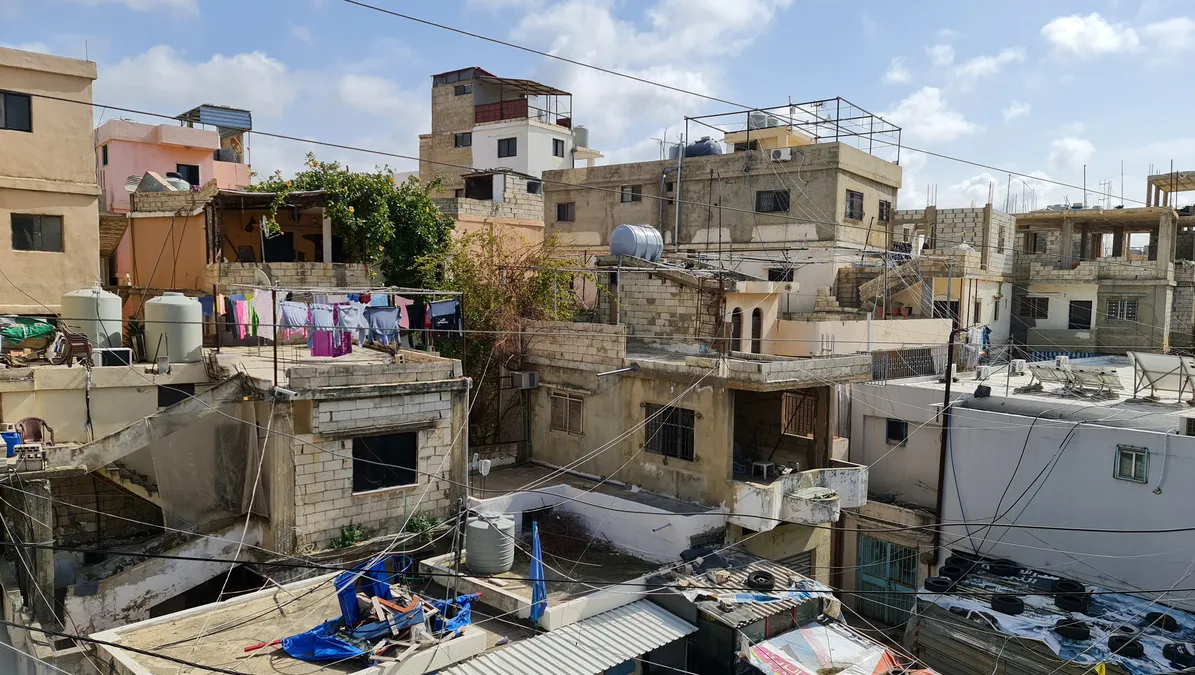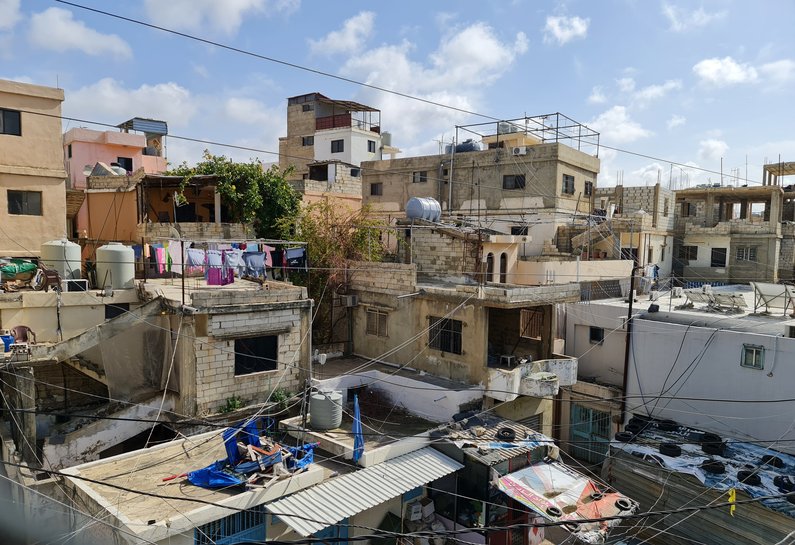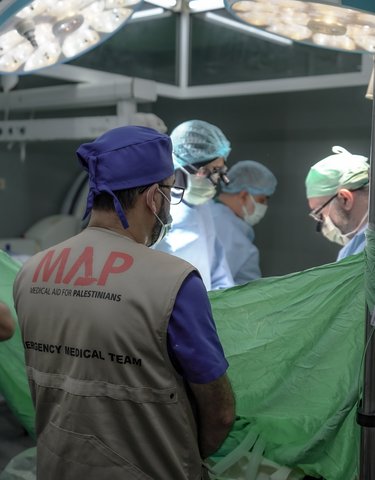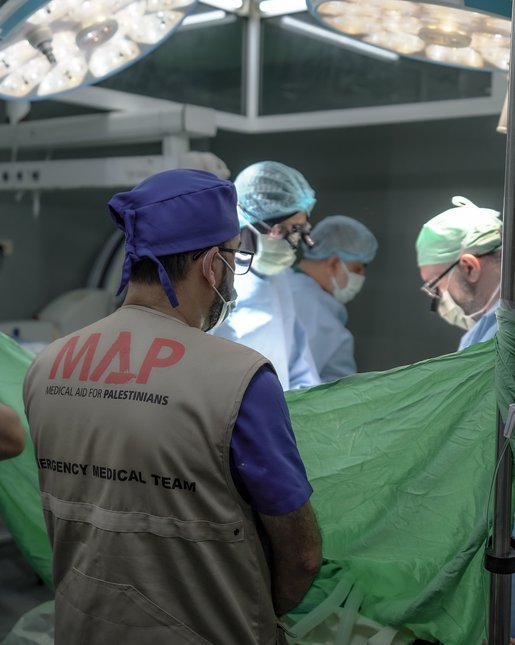“Everyone has become poor, but Palestinians have been hardest hit” in Lebanon
4 May 2022


“Everyone has become poor, regardless of their nationality. But Palestinians have been hardest hit, as their conditions were very bad before the crisis,” said 45-year-old Sumaiya*, who lives in Burj el Shemali Palestinian refugee camp, in the south of Lebanon.
Sumaiya is a mother of two children, Rami and Hussein, and used to work as a kindergarten teacher. But during Lebanon’s civil war, she was caught-up in an explosion and suffered from severe injuries and subsequent health problems. Her poor health prevented her from working for many years. When Sumaiya’s son Hussein was born, he was diagnosed with cerebral palsy. Sumaiya now provides round-the-clock care for Hussein, meaning she is unable to work.
Sumaiya’s husband works as a labourer on minimum wage, similar to many Palestinians who are restricted from working in almost 40 professions in Lebanon. The money he earns is barely sufficient for the medicines that Hussein regularly needs, leaving the family struggling and exposed to increased poverty and marginalisation.
A survey by the American University of Beirut and UNRWA, the UN agency for Palestinian refugees, found a strong correlation between disability and poverty, and that the share of household expenditure on health jumps from 3% to 13% when a family member is chronically ill or disabled.
Since the start of Lebanon’s economic crisis, Sumaiya’s family’s living conditions have deteriorated considerably. Inflation has soared to more than 200%, while incomes have remained the same. The family have sold almost everything they own to be able to cope and survive, but they are still finding it hard to put food on the table and struggled to keep warm during the winter. Their house now has almost no furniture left and the roof is tin, which made the winter months extremely cold.
“To buy a bottle of cooking oil, I have to borrow money and return it through weekly payments. It sometimes takes me two or three months to be able to pay the money back in full. Now, the cost of oil has further increased by about 20%. How am I supposed to deal with this situation?” said Sumaiya.
Lebanon’s economic collapse is also having a grave impact on 65-year-old Amina*, who lives in a two-room house in Burj el Shemali camp with her six children. Amina suffers from multiple chronic diseases and is in need of a regular supply of medicines.
Winter was especially difficult for Amina and her family as their home has a tin roof which leaks water when it rains, and their windows are covered with plastic sheets to replace the broken glass. They do not have heating or enough blankets for all the family, so they endured very cold temperatures.
Amina’s brother gives her 300,000 Lebanese pounds a month, which used to be the equivalent of $200 before the financial crisis and the devaluation of the currency, but now equates to only around $12. This is the family’s only steady income, but is not enough for them to pay their monthly electricity bill or for even a few days of food. To make matters worse, Amina has been informed that she will face an even higher monthly electricity bill, which could leave the family with only two hours of government electricity per day.
“The assistance came at the right time”
Along with 763 Palestinian families across Burj el Shemali and Rashidyeh refugee camps, MAP – in collaboration with our partner Association Najdeh – provided winter packages to support Sumaiya’s and Amina’s families cope during the winter. The packages included a nutritious food parcel, with enough food for two to three months, and two warm winter blankets.
“The assistance came at the right time and responded to our most pressing needs,” said Sumaiya. “I was very happy with the project’s support. I did not have blankets – the donated ones are very warm. The amount and variety of food is excellent,” Amina added.
Despite the tough conditions both Sumaiya and Amina are experiencing, they consider themselves blessed to have wonderful families and are optimistic about the future. Amina is hopeful that when her children graduate from university and start working, the family’s financial conditions will improve.
As well as the humanitarian support of organisations like MAP, Sumaiya believes that giving Palestinian refugees rights to employment in Lebanon will allow them to provide for themselves and cope during this crisis, until their return to their homeland is possible.
Please consider donating to MAP’s emergency response work supporting Palestinian refugees in Lebanon.
*Names changed to protect identities.
Photo: Burj el Shemali Palestinian refugee camp in Lebanon. (Credit: Wafa Dakwar / MAP).

